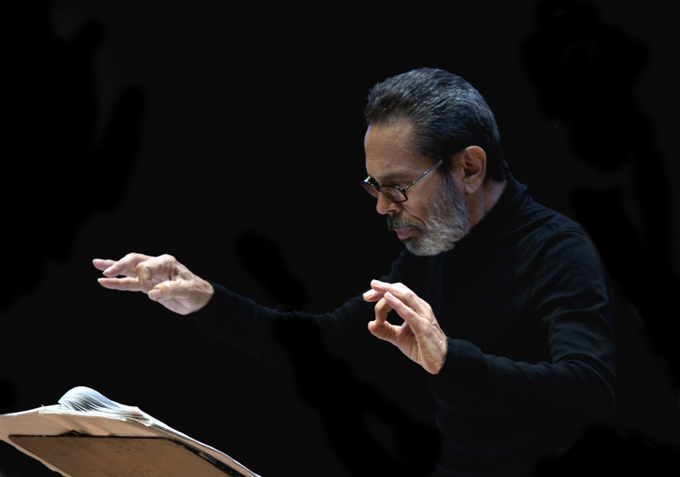Folklife Friday is a weekly digest of arts and culture articles, podcasts, and videos from across the web. Read on for a selection of the week’s best cultural heritage pieces, and don’t forget to check back next Friday for a new set of weekly picks.
“To Be Useful Is Something Incredible”: Leo Brouwer Reflects on His Legacy
At 78, Latin American composer Leo Brouwer is still translating his many ideas into sound. In this NPR Music podcast and essay, Brouwer reflects on his storied career and his early interest in the intersection between Cuban instruments and classical music. “I spent four hours a day standing, studying Stravinsky,” Brouwer explains, referencing his childhood visits to music stores in Havana. “That's the world in which I began to compose.”
The Legend of King Solomon and the Passover Feast
In King Solomon’s Table: A Culinary Exploration of Jewish Cooking from Around the World, author Joan Nathan traces the longstanding history of traditional Passover dishes. In this article, Nathan focuses squarely on a handful of these, including haroseth, a sweet blend of fruits and nuts, mandelbrot, a variation on biscotti, and more. She also discusses Jewish cuisine in a global context. “As a wandering people, Jews have influenced many cuisines as they carried their foods to new lands while fleeing prejudice or migrating in search of opportunities.”
What “White” Food Meant to a First-Generation Kid
“The relationship between Americanness and consumption was a complicated one,” Lisa Ko, author of the new novel The Leavers, writes in this op-ed. Ko, whose Chinese parents immigrated from the Philippines, fully embraced “American” culture in her New Jersey hometown. But like the history of Spam, an American food popularized in parts of Asia and then shunned back in America, assimilation may not be as tidy as it appears to be. “Maybe there was no such thing as American normalcy; or maybe the normalcy was in itself a performance.”
It Takes Years to Make a Good Tibetan Dumpling
At The Momo Shack in East London, chef Alex Lobsang serves handmade momos, or Tibetan dumplings—a staple his father taught him to prepare years ago. “My dad would make the dough and give us the rollers,” he recalls. “When you climbed up the hierarchy, he’d be like, ‘You can make the mince now.’ The ultimate goal was to sit there and wrap them with him.” Filmmaker and Folklife researcher Dawa Drolma is bringing similar stories to light with her online project, Tales of Tibetans.
“Bend It Like Beckham” and the Art of Balancing Cultures
For Rajpreet Heir, an Indian American struggling to define her identity in her Indiana hometown, the film Bend It Like Beckham encouraged her to embrace her own cultural identity, rather than assimilate into a community. The film, which centers around a British Indian soccer player, weaves together a series of disparate cultural expressions to form a singular narrative. “I came to realize that transiency was, in some ways, a gift,” Heir writes. “In the absence of a place that reflected who I was, perhaps I could make my own.”
Special thanks to editor Elisa Hough and to Michael Mason for their contributions to this week’s digest.


